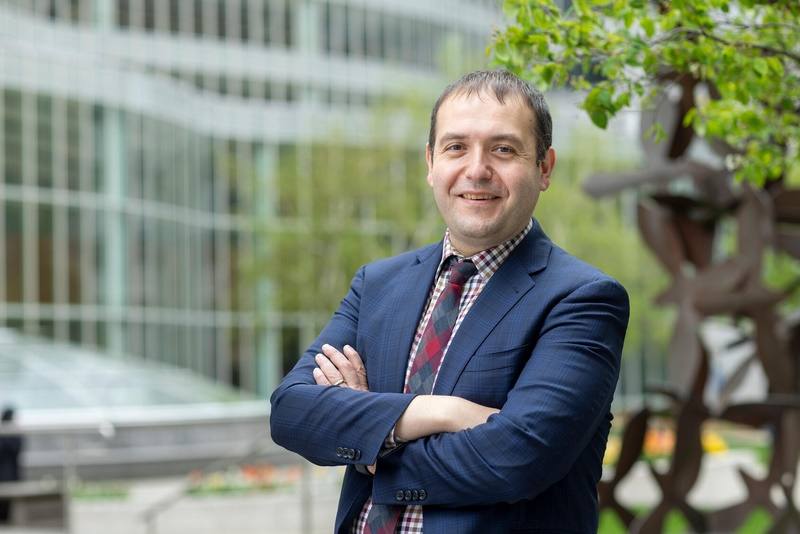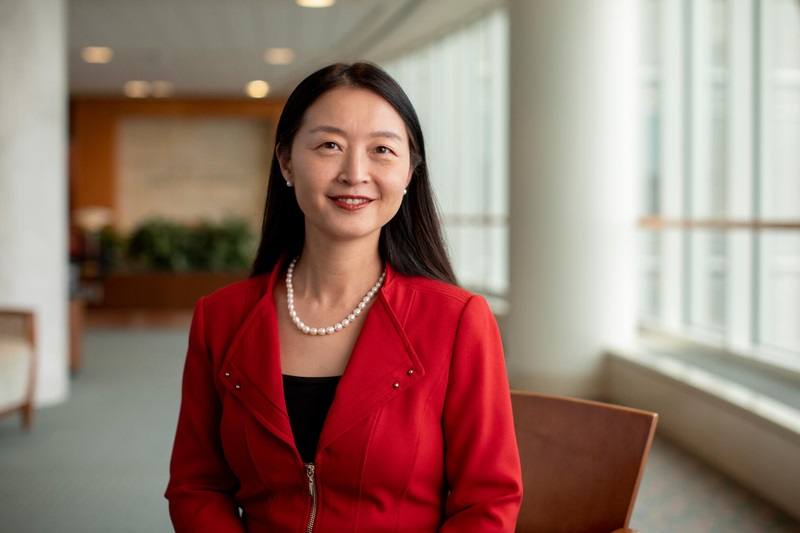-
Clinical Trials
Clinical trials are the gold standard of medical advancement, but designing and conducting them requires a wide range of knowledge and skills not often taught in medical or graduate school.

Mayo Clinic’s new Clinical Trialist Training Program teaches physicians and researchers how to design and implement clinical trials.
“We are true pioneers in this area,” says Prasad Iyer, M.D., chair of the Division of Gastroenterology and Hepatology and director of the new program. “Right now, there are no standards for training clinical trialists. We are blazing a new but much-needed path.”
The Clinical Trialist Training Program, offered by Mayo’s Center for Clinical and Translational Science, provides 40% protected time over two years for mentored, individualized training. Each scholar designs and implements a pilot trial and completes experiential learning rotations and a curated selection of graduate coursework.
A ‘tremendous learning opportunity’
Before starting the Clinical Trialist Training Program, Ugur Sener, M.D., a neuro-oncologist, says he faced two key challenges with trial development: limited research time and lack of training in trial design. The program has helped him overcome these barriers.

“The Clinical Trialist Training Program is a tremendous learning opportunity,” says Dr. Sener. “Thanks to the program, I am the principal investigator of a study that opened in May, and this is paving the way for many additional opportunities.”
Mentors have contributed greatly to his learning experience: advising on trial design, co-authoring papers and helping him connect with industry partners.
After completing coursework on regulatory issues, Dr. Sener says that his improved knowledge led him to work as a section editor of a book on translational neurosurgery. In addition, he used knowledge from a health disparities course to develop two additional studies, one for a large Patient-Centered Outcomes Research Institute (PCORI) grant application and another under review by Mayo’s Institutional Review Board.
Mentoring will ‘get you where you want to go more quickly’
Jian Campian, M.D., Ph.D., a medical neuro-oncologist, is a Clinical Trialist Training Program mentor. In her experience, many clinical trialists are self-taught, and that leads to unnecessary mistakes and failures. Career trajectories are also more uncertain for self-trained trialists without mentors to guide them.

When mentoring clinical trialists, Dr. Campian tailors her approach based on the trainee’s interests. A trainee may be interested in early-stage or later-stage trials or want to focus on different types of trials, such as signal finding, prevention and screening, or treatment.
“Interest is the best teacher,” she says. “There are so many ways to do clinical research.”
Dr. Campian also focuses on each trainee’s career goals, adjusting the scope and depth of her mentoring based on their needs. Some trainees may benefit from getting involved in multicenter studies, where they can learn the ropes of clinical trials through collaboration and networking with scientists across the country. Other trainees, particularly those looking to make their mark in academia, may benefit from “doing everything from scratch,” starting with designing small trials and overseeing every aspect from start to finish.
“A good mentoring structure will help you get where you want to go in your career more quickly,” says Dr. Campian. “It also leads to better science.”
An ecosystem that advances research and careers
The Clinical Trialist Training Program started in 2022 and began accepting applications in 2023.
Dr. Iyer says this is just the beginning. The program is systematically monitoring outcomes and has plans for future growth.
In Dr. Iyer’s view, this program aligns with Mayo Clinic’s institutional focus on clinical trials and on training and inspiring the next generation of research leaders.
“Our goal is to foster an ecosystem that enables promising scholars to grow into successful clinical trialists, advancing their careers and accelerating research for the benefit of all people,” says Dr. Iyer.
